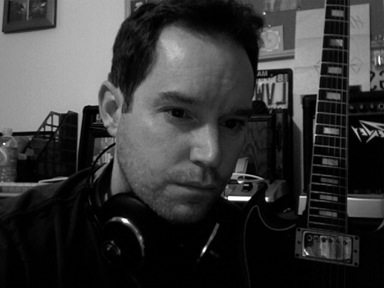
So I watched Bill Maher’s “Religulous” movie the other day and, for the most part, I had the typical “non-believer” response—a general feeling of smug superiority coupled with a diminished sense of hope for the human race. Of course, Maher presents mostly the kookiest nut-jobs he could find (which unfortunately includes Arkansas Senator Mark Pryor), sidestepping the undeniable fact that there are many, many highly intelligent religious people who hold nuanced beliefs that are not so easy to dismiss. I know several people who are smarter and more sensitive than I am who are down with Jesus, so that right there takes the stance “religious people are morons” right off the table.
I get Maher’s main point though, and I agree with it: People believe some crazy shit! But ignorance and stupidity are hardly limited to religious beliefs. How about politics? And yes, even science! We all pay attention to certain things and ignore other things, depending on cultural conditioning, unconscious processes, choices, and whatever other random shit. “Paying” attention is an apt metaphor too, because there are multiple vendors competing to make a sale, and we’re always buying what someone is selling. Critical thinking skills and self-awareness are a couple of the tools we use to make sense out of what we’ve paid attention to, fashioning the whole ball of wax into what we believe. Whatever we are unaware or ignorant of won’t be included in our belief system, and the less that’s included, the more distorted the belief system.
Most of the yahoos interviewed by Maher were ignorant of the basic content and history of their own religions. A lot of them seemed dimwitted to boot. They had whacky religious views, sure, but I bet their understanding of politics and science is a little off too. So, it’s not religion per se that’s problematic. The problem, as I see it, is that ignorance and dimwittedness are and always have been part and parcel of human societies. This cluelessness is encouraged and exploited by multiple institutions, including religions, governments, and even scientific research departments at universities. We always hear that religion and politics are all about money and power, but few want to acknowledge just how “ridiculous” science can be, and is, when corrupted by those same dark forces.
It’s fashionable these days to pit science against religion, as if the former represented objective truth and the latter blind faith. This is off the mark, as far as I’m concerned. Take psychiatry, for instance. You see all these authoritative figures in hospitals and universities, dressed up in white coats sometimes, preaching from their “Bible” of mental disorders, The Diagnostic and Statistical Manual (DSM). All these “leading scientists” from the “leading institutions” releasing their latest studies showing how our personal problems—like anxiety, depression, bipolar disorder, substance abuse, our inattentive children—are essentially matters of faulty brain chemistry or bad genes. They show us the brain scans to prove it, and assure us that the latest drug treatment has been shown to be effective. Scientific and objective, right? Yet this article in The Washington Post leads off with: “Every psychiatric expert involved in writing the standard diagnostic criteria for disorders such as depression and schizophrenia has had financial ties to drug companies that sell medications for those illnesses”. Gee, I wonder if that set-up distorts the scientific process any?
Now, I’m not saying that science is a religion or any crap like that. I’m just saying that science plus ignorance equals bad science, just as religion plus ignorance equals bad religion. In my personal experience, most of what passes for religion in our society is bad religion. As a naturally curious and philosophically inclined person, I’ve engaged hundreds of people in dialogues about their religious beliefs. My general conclusion is that most people believe what they do simply because some authority figure told them it was so. No critical thinking, no compelling reasons, no real dialogue possible. Whatever. People believe whatever keeps them most comfortable, it seems. The believer’s anxiety is assuaged and the preacher’s car has heated leather seats. It’s a win – win.
Unfortunately, the “science” of psychiatry is sliding into the same pile of horse-poop. For instance, “Say it ain’t so Joe” Biden introduced the “Recognizing Addiction as a Disease Act of 2007,” in which he declared “addiction is a chronic, relapsing brain disease.” The National Institute on Drug Abuse, the National Institute on Alcohol, and Twelve Step groups all over the country already endorse the same general disease model, so it must be true, right? Well, Stanton Peele, for one, doesn’t think so, and neither do I. The notion that chemical imbalances or “brain diseases” cause psychological problems takes a partial truth (namely, that all subjective experience correlates with some pattern of neurological/biological activity), ignores several other partial truths (like that life experiences can and do shape the structure and function of the brain), and arrives at a badly distorted conclusion that keeps drug companies rolling in dough, certain researchers rolling in grant money, and the rest of us blissfully ignorant as we hand over the reins of our health and happiness to authority figures. Sound familiar?
End of rant.








